The Iranian Shia people mourn the martyrdom of their third Imam while wearing masks and observing the social distancing protocols to prevent the spread of the deadly virus.
They mourn the first 10 days of Muharram month. The peak day of their mourning ceremonies is the 10th day known as Ashura when Imam Hussein (AS) and his followers were martyred.
This is the third year that mourning ceremonies are held during the coronavirus pandemic.
Ashura is a major holiday for the Iranian Shia community which has always commemorated the day throughout history.
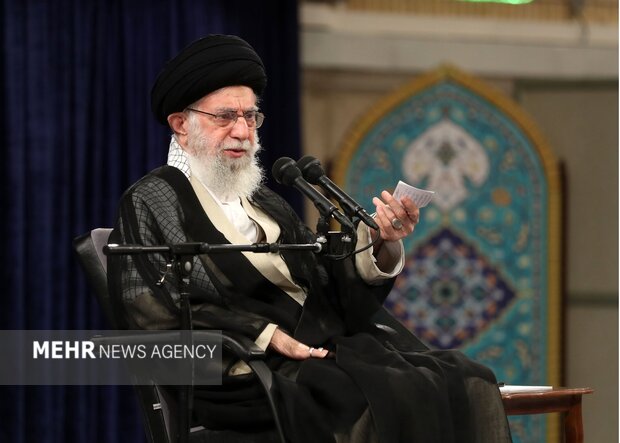
On August 3, 1994, Leader of the Islamic Revolution Ayatollah Seyyed Ali Khamenei emphasized that religious groups are in fact the pillars of maintaining the faith and passion of the Iranian nation for the Ahl al-Bayt.
He stated that these religious groups are strong links between today and Imam Husseini's Ashura, they transfer that spirit to today, and they renew the memory of Imam Hussein (AS).
In a televised speech on Aug. 11, 2021, Ayatollah Khamenei urged participants to abide by health protocols such as social distancing in mourning ceremonies, which he said were important for "attaining God's blessing" and were needed by the nation. Ayatollah Khamenei urged participants not to allow the ceremonies to give an excuse to "enemies" for criticism.
Under the pandemic, the Leader of the Islamic Revolution Ayatollah Sayyed Ali Khamenei called on the nation to participate in what he named as 'the Equality, Sincere Assistance Maneuver' in a bid to show sympathy and provide sincere assistance to the needy and the poor in society. People all across the country are still taking part unitedly in this maneuver to once again prove their support for each other.
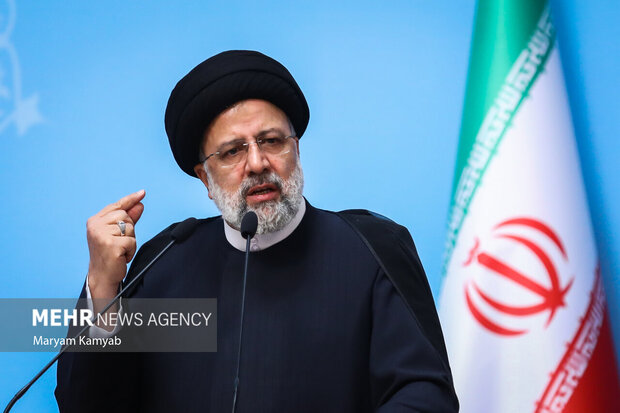
According to president.ir, Iranian President Ayatollah Ebrahim Raeisi addressed Iranian mourners, noting that the most important lesson from Ashura (the tenth day of Muharram) comes from Imam Hussein's words, who said that it is better to follow the thoughts, traditions, and actions of the infallible households of the Prophet of Islam.
Imam Hussein (PBUH) and his 72 entourage confronted Yazid, the second Umayyad caliph, in 680 aimed at preserving the holy religion of Islam and the traditions of Prophet Muhammad (PBUH).
Describing the Karbala event as an informative movement for all followers and mourners of Imam Hussein (PBUH), Raeisi stated that the Karbala uprising is a big lesson for the Islamic Republic's authorities to follow the way of the infallible Imam and try to make amend the situation based on Imam Hussein's acts.
Ashura is an exemplary event to take lessons and guarantee justice, fairness, and fight against tyranny in all eras; so, Ashura is an example of the way of living, he mentioned.
The enemies of the holy religion of Islam wanted to witness the end of freedom-loving and justice-seeking people on the day of Ashura, but God's willing it turned into one of the most important historical events, which initiated a movement throughout history, he concluded.
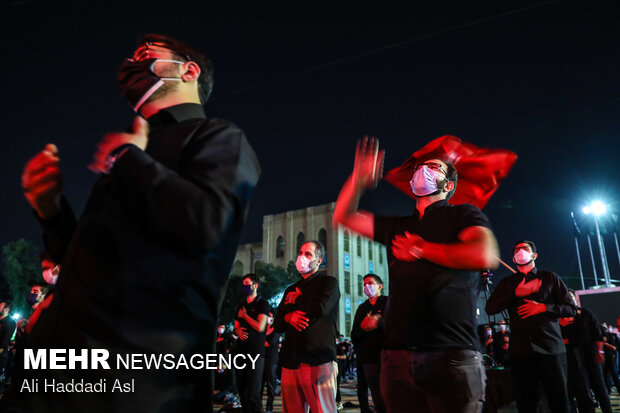
Muharram rituals are held all around the world where there are Shia Muslims. Shia Muslims start mourning from the first night of Muharram and continue for ten nights. Shia Muslims, hold special ceremonies during the first ten days of the lunar month of Muharram to commemorate the martyrdom anniversary of Imam Hussein (AS) and his 72 loyal companions.
Like other parts of the world where Shia Muslims hold some mourning ceremonies for the commemoration of Imam Hussein, Muharram mourning ceremonies are also held in all cities of Iran. During the days of Muharram mourning, the appearance of the cities and towns in Iran change dramatically and the streets are shrouded with black flags and banners. These days most people wear black or dark colors as a sign of their grief. Muharram and Ashura, the 10th day of Muharram, are the most significant events in Iran.
The mourning ceremonies are held more passionately in some cities. Zanjan, Tabriz, Ardabil, Mashhad, Ahvaz, Abadan, and Yazd are among the cities where mourning ceremonies can be seen differently there. In every single spot, people offer particular religious ceremonies labeled to be their own and famous in their regions.
Muharram is a month of remembrance. It is to honor Imam Hussein and his followers, who sacrificed all and everything possible for the sake of Islam, to show that right is might, how the blood of the innocent can win over the sword of tyrants, and how to achieve victory despite being oppressed.
Shia Muslims believe that even though the great Imam was martyred in a battle in the plains of the holy Iraqi city of Karbala, his message was heard loud and clear by the people of his own time, those who followed and will follow until eternity.
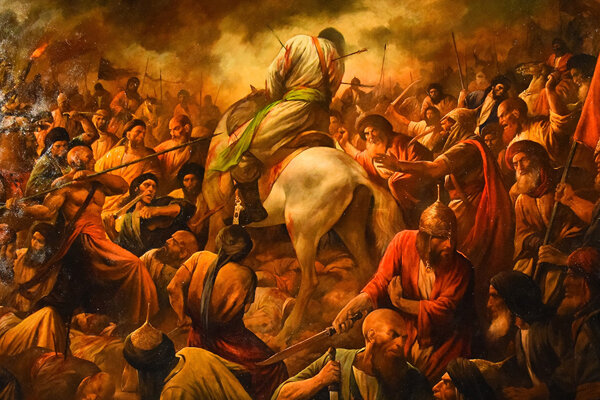
Ashura as the symbol of truth, dignity, honesty, selflessness, and human integrity is not limited only to Muslims. Rather, it is respected and commemorated by followers of other religions and faiths in and outside Iran.
Ashura symbolizes the battle between good and evil, virtue and vice. The tragedy is marked, among other things, to persistently convey the message that being outnumbered does not count when it comes to right against wrong.
During Ashura, and its preceding day, Tasua, booths are set up on most streets, offering sweet drinks to passers for free. Households prepare food, known as Nazri, for others as a way of almsgiving. The preparation and the partaking of this food are considered a privilege by believers, who say no one must go hungry or thirsty on this day, the saddest in the Islamic calendar.
During the first ten days of the month, people form assemblies and listen to the orators reciting ritualized accounts of the Battle of Karbala.
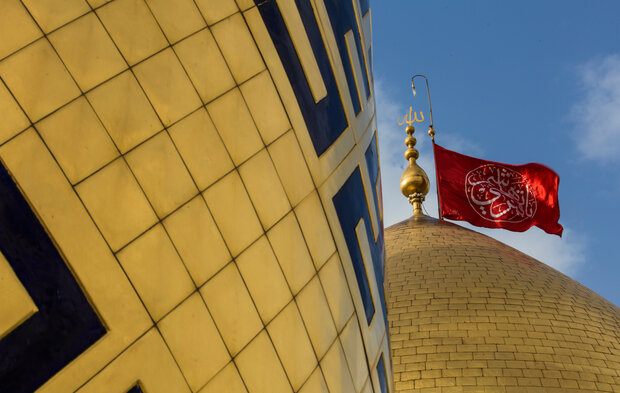
These years' mourning ceremonies, however, have been affected by the coronavirus pandemic that has been sweeping across all world countries.
Iran’s Council of Iranian Religious Congregations has urged the general public to follow the guidelines of the National Task Force for Fighting Coronavirus in holding mourning ceremonies during Muharram.
Iranian society is experiencing new trends under the coronavirus pandemic and in Muharram, the most significant of which is the increasing people's support for each other and their cooperation in improving their livelihood.
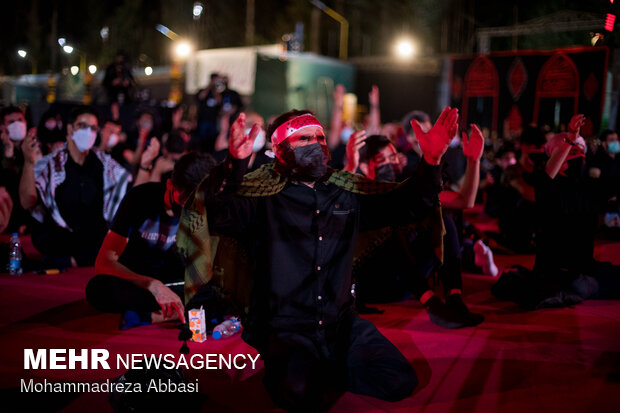
Among the most recent events in Iran, the outburst of Covid-19 can be named as a new origin for the social history of the country. Shuffling the social structures of the country, the pandemic has created new definitions of the individual and society in Iran, in particular having Muharram mourning rituals held during the pandemic.
These years are one of the most popular rituals in the history of the Islamic Revolution in Muharram. The nation's united and spontaneous participation in the rituals is unbelievable.
The pandemic has moved some gatherings of mourners known as ‘heyat’ (literally meaning group or delegation) to the internet, where the mourning ceremonies are broadcast live on social media such as Instagram for all people to see.
Although the enemies took to the internet to spread anti-Ashura sentiments by saying that the ceremonies would further spread the coronavirus and wrote thousands of analyses on the subject, we saw that the love and devotion for Imam Hussein managed to overcome and defeat even the deadly coronavirus as some ceremonies switched from their physical venues to the virtual cyberspace besides in-person gatherings.
Reported by Amin Mohammadzadegan Khoyi


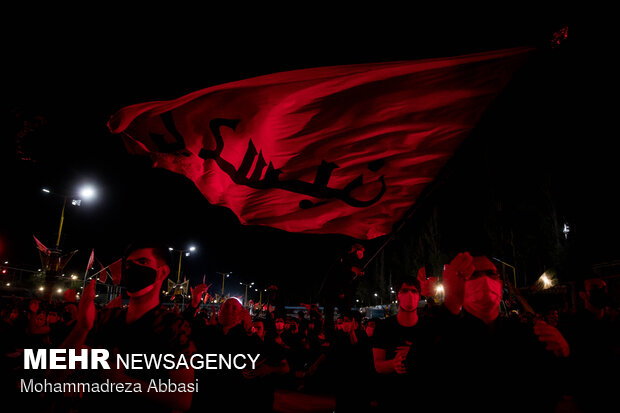





















Your Comment